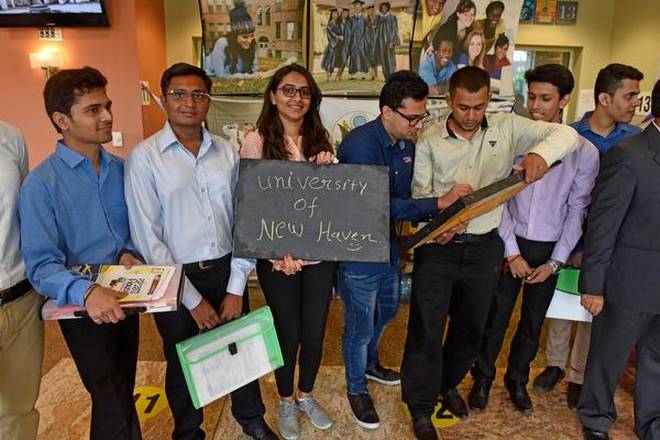
What do you call someone who falls between a “home student” and an “international student”? It’s something I’ve often asked myself; four years ago, I packed up my life, which I’d spent in Finland, and transported it to chilly UK student accommodation. With a Finnish mum, a British dad, a stereotypically English surname and an accent that sounds part Finnish and part British, people have guessed I’m from places as disparate as Kent and Ukraine. But my situation isn’t only puzzling to other people; I’m still undergoing something of a dual culture shock myself.
According to the Higher Education Statistics Agency (Hesa), 13.4% of undergraduates at British universities were non-UK domicile in the academic year 2014-15, with an even higher number among the postgraduate population (38%). University websites and student blogs prepare international students coming to the UK for everything from finding funding to surviving the rainy weather and British politeness; while British students preparing for a year abroad are warned about the difficulties of adjusting to a new environment, or educated about the joys of discovering a new culture.
Missing from these statistics is a diverse group who are neither “home” nor “international” students. Every year, British expats and those with other forms of British heritage – a British parent, for instance – travel to UK universities to experience a part of their cultural background first-hand. We don’t know how many such students there are, as students are classified by country of origin or nationality, not their cultural heritage. However, these undocumented not-quite-international students face some unique experiences and problems that evade their peers.
I got a head start to my freshers’ week with a few days dedicated to international students. Despite having never actually lived in the UK long-term, I couldn’t empathise with my peers who were completely new to the UK. “Been there, done that” was how I felt when my new international friends posted photos of their cream teas on Facebook, or discovered – with a mix of horror and curiosity – the blandness of British food.
But once my UK-domiciled peers arrived, it turned out that I was equally not quite one of them. I was at a loss when everyone reminisced about childhoods filled with Blue Peter – I was more familiar with Postman Pat – and I was well into my first term when I finally realised that the leavers’ hoodies everyone was so proudly sporting were not, in fact, tokens of national level sports club membership.
Kate Bulteel, 23, who recently graduated from the University of Cambridge, is half-British on her father’s side and hails from Maine in the US, and recalls similar experiences. “It wasn’t until my third year that I realised that some British families still have a roast every Sunday. I thought it was a quaint, forgotten custom, but it turned out some people still took it totally seriously,” she says. “Likewise with pancake day. Nobody does Mardi Gras in America except in New Orleans – why are Brits so keen?”
It’s not all about culture, though. With student budgets having to meet increasingly high tuition fees, non-UK-domiciled students with a British background find themselves facing extra hurdles. Many expat students are frustrated that their British passports don’t qualify them as home students for fees purposes. Instead, they are classified as international students and are liable for higher fees. At Bristol, for example, a home or EU student will pay £9,000 a year for a science course, while their international peers will be forking up double the sum.
As they’re officially considered as “international”, not-quite-international students are also unlikely to qualify for government-sponsored financial student support, such as tuition fee loans, or for other sources of UK-based funding. The main funding body for non-science courses at postgraduate level, the Arts and Humanities Research Council (AHRC), for instance, requires applicants to be resident in the UK in order to meet the eligibility criteria for a full reward.
That said, there’s more to being not-quite-international than cultural confusion and financial hurdles. The intermediate status of students like Bulteel and me can also bestow upon us the role of a cultural mediator. “The international students all tended to say that the Brits came off cold and not particularly helpful when they were struggling to learn the British system and get more comfortable with English,” says Bulteel. “I felt like a bit of a bridge between the two.” When it comes to making friends, being able to build bridges between groups of fresh-faced students can be pretty useful.
[Source:- The Gurdian]




